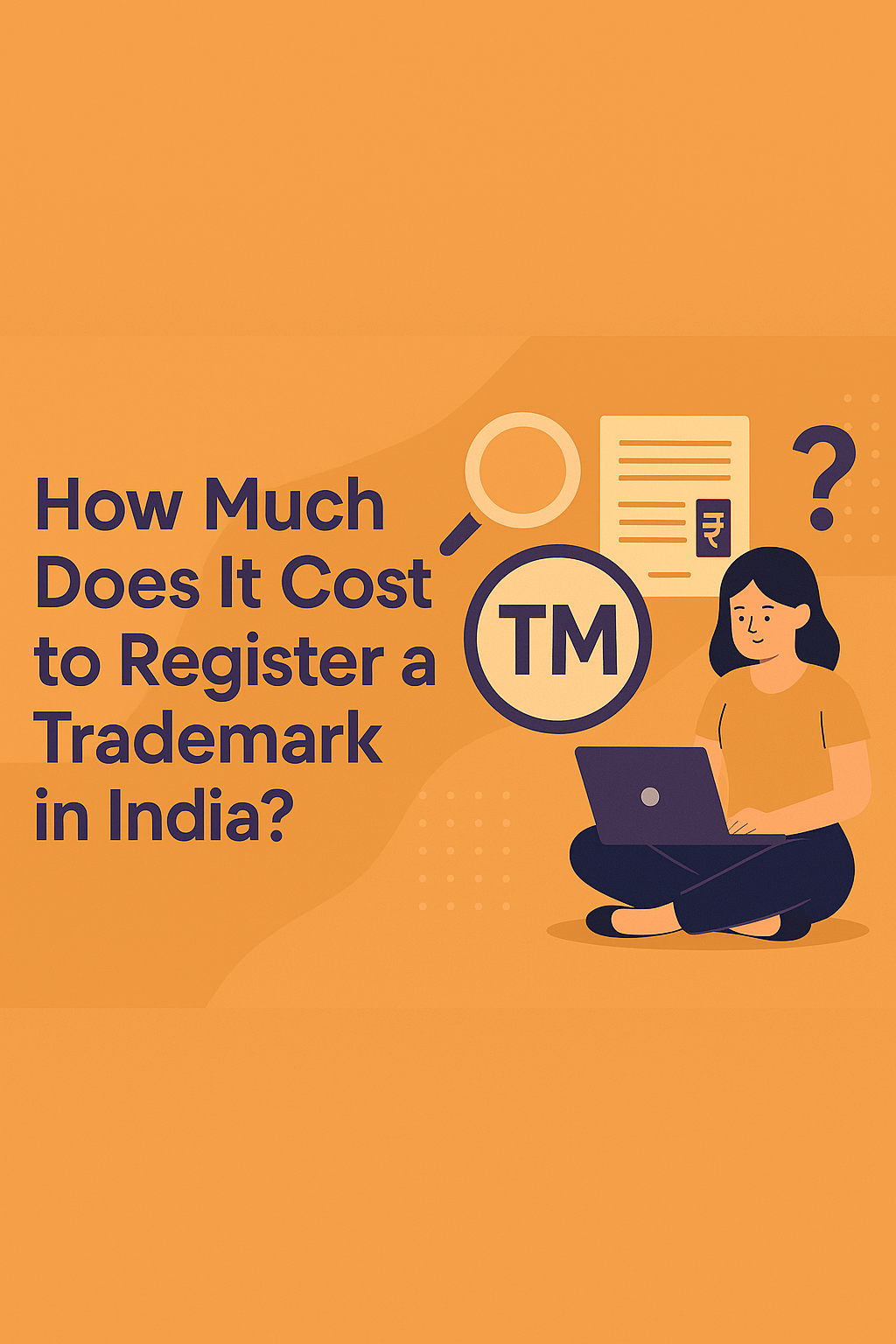How Much Does It Cost to Register a Trademark in India?
Trademark registration in India protects your brand affordably—learn government fees, key steps, and smart tips, even without legal help.
IPR
Ajay
6/26/20253 min read


Have you thought of protecting your brand name or logo from being copied? The purpose of a trademark is to do just that. A trademark is a meaningful symbol, word, phrase, design, or logo that your customers will remember in distinction to other products or services. When trademarked in India, a trademark gives you legal rights to your brand and protects you from anyone using it without permission.
But what people (especially individuals and startups) may be curious to know is – how much do trademarks cost in India? This article intends to clarify all of your questions in a simplified and readable format.
1. Why is Trademark Registration Important?
It legally protects your brand.
Exclusive rights to the mark throughout the country.
It helps build customer trust and loyalty.
You can sue anyone who infringes.
It adds business value, particularly for growth and investment opportunities.
2. Basic Types of Trademark Applicants
The cost for trademark registration in India is dependent on the applicant's type of business structure. Applicants fall into three categories:
Individual/Sole Proprietor
Startups/Small Enterprises
Other Entities (companies, LLPs, firms that don’t qualify as small enterprises)
Each of these three categories has a different fee structure prescribed by the government.
3. Government Fees for Trademark Registration
Official Government Fees to file a trademark in India:
For Individual/Startup/Small Enterprise: ₹4,500 (e-Filing), ₹5,000 (Physical Filing)
For Other Entity (Company/LLP, etc.): ₹9,000 (e-Filing), ₹10,000 (Physical Filing)
Note: The fee is per class. If your brand extends to more than one class (for example, clothing and cosmetics), you will pay this fee separately for each class.
4. What Are the Classes in Trademark Registration?
Trademarks are classified according to the Nice Classification into 45 classes:
Classes 1 to 34: Goods (clothing, electronics, food, etc.)
Class 35 to 45: Services (retailer services, legal services, educational services)
It is important to choose the correct class or classes because that is where your trademark protection will stop.
5. Professional or Attorney Fees
Though it is not compulsory, many people prefer to hire a trademark agent or advocate to help with the registration process. This can make the process smoother and reduce the chances of mistakes or delays.
The fees charged by professionals vary and usually depend on:
Their reputation and experience
The complexity of the trademark application
The number of classes applied for
Whether there are any objections or hearings involved
Some legal professionals and online platforms offer complete assistance, including filing, responding to objections, and handling hearings. It’s always best to clarify what services are included in the quoted fee before proceeding.
6. Other Possible Costs
Some optional, but could be helpful services to consider that can increase your costs:
Additional Fees:
Notice of Opposition (per class): ₹2,700 (e-filing) or ₹3,000 (physical filing).
Renewal of registration (per class): ₹9,000 (e-filing) or ₹10,000 (physical filing).
Renewal with surcharge/restoration (per class): ₹10,000 + renewal fee (e-filing) or ₹10,000 + renewal fee (physical filing).
7. Process of Trademark Registration
Here's a simple summary of the process and possible expenses you'll incur:
Trademark Search (only optional, but highly recommended!)
Filing the Application - Government Fee depending on your category
Examination Report - Issued from the Trademark Registry, only if objections arise
Reply to Examination - you might have to write a detailed reply with clarifications.
Publication in Trademark Journal - no fee
Opposition (if applicable) - Any 3rd party has 4 months to file an objection.
Registration Certificate - if no objections or opposing parties
The entire process will take anywhere from 6 months to 2 years, depending on objections and opposition.
8. Tips to Save Costs and Time
Tips:
Always do a thorough trademark search before you apply to avoid a rejection.
Always apply online - it is cheaper and quicker.
Always make sure all your documents are correct, and you have included all documents to avoid any unnecessary delays.
Always register under the correct applicant category and save filing fees.
If you receive objections, reply within the timelines and do not abandon the application.
In Conclusion, Trademark registration in India is a cost-effective and reasonable way to establish your brand identity. If you are an individual or a startup and plan to register the trademark on your own, it could cost you in the range of ₹4,500 to ₹10,000.
The disadvantages of not having a registered trademark far outweigh the costs of obtaining one. Not only does a registered learn trademark prevent others from copying the brand, but it also adds to your business's value and credibility. Now, whether you're a new startup or an already established business, trademark registration is a key step in building a strong and legally protected brand.
If you are comfortable and educated about the process, you can also self-register the trademark on the government portal. Hopefully, this blog has simplified the process and opened up the potential of trademark registration for everyone.
